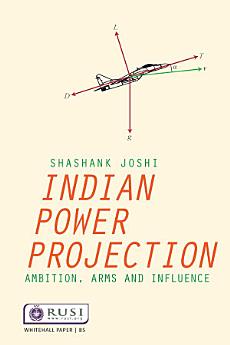Indian Power Projection: Ambition, Arms and Influence
About this ebook
Indian Power Projection assesses the strength, reach and purposes of India's maturing capabilities. It offers a systematic assessment of India’s ability to conduct long-range airstrikes from land and sea, transport and convey airborne and amphibious forces, and develop the institutional and material enablers that turn platforms into capabilities. It draws extensively on the lessons of modern expeditionary operations, and considers how India’s growing interests might shape where and how it uses these evolving capabilities in the future.
This study finds that Indian power projection is in a nascent stage: limited in number, primarily of use against much-weaker adversaries, and deficient in some key supporting capabilities. India’s defence posture will continue to be shaped by local threats, rather than distant interests. Indian leaders remain uncomfortable with talk of military intervention and expeditionary warfare, associating these with colonial and superpower excess. But as the country’s power, interests and capabilities all grow, it is likely that India will once more find itself using military force beyond its land borders.
About the author
Shashank Joshi is a Senior Research Fellow of the Royal United Services Institute in London and a Research Associate at the Changing Character of War Programme at Oxford University. He is also a PhD candidate in the Department of Government, Harvard University. He specialises in international security in South Asia and the Middle East, with a particular interest in Indian foreign and defence policy. He received his BA from Gonville and Caius College, University of Cambridge and his MA from Harvard, where he was a Kennedy Scholar. He has lectured frequently at the UK Defence Academy and to other diplomatic, military, and academic audiences in the UK and abroad. His work has been published in a variety of peer-reviewed and policy journals, and in British, American and Indian newspapers.





